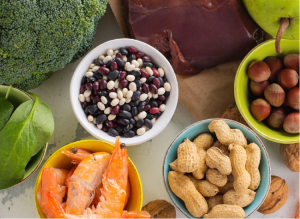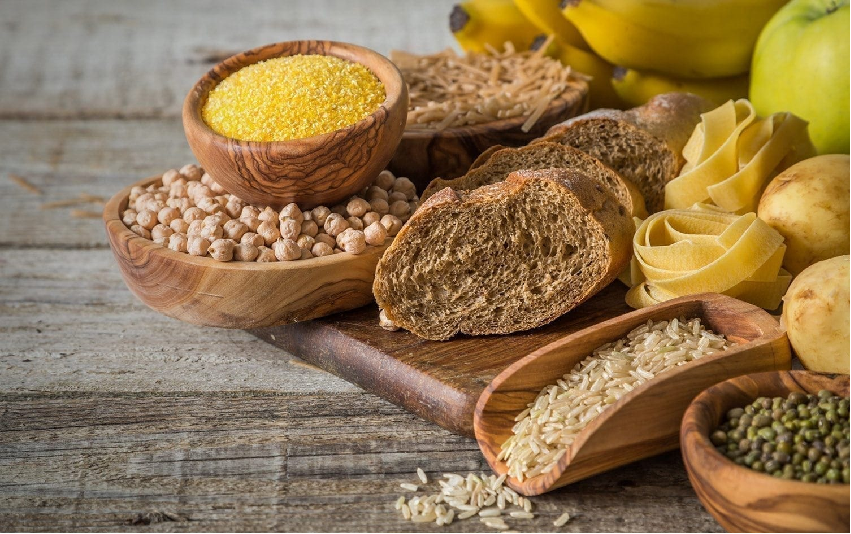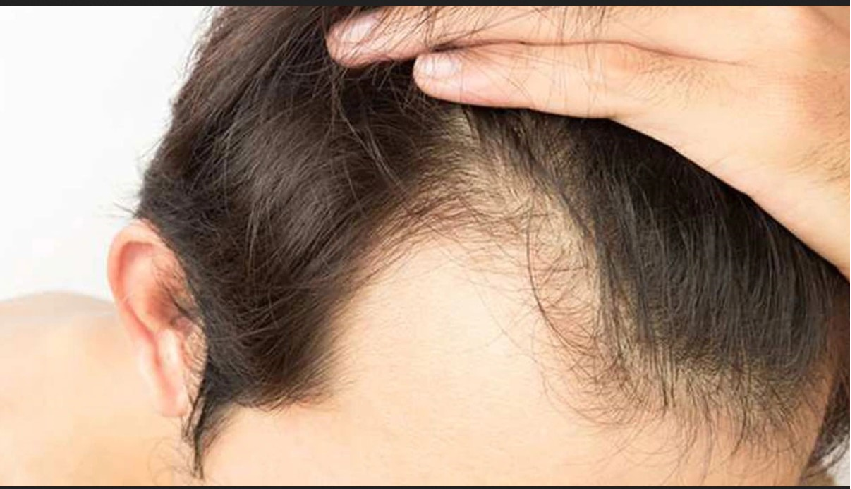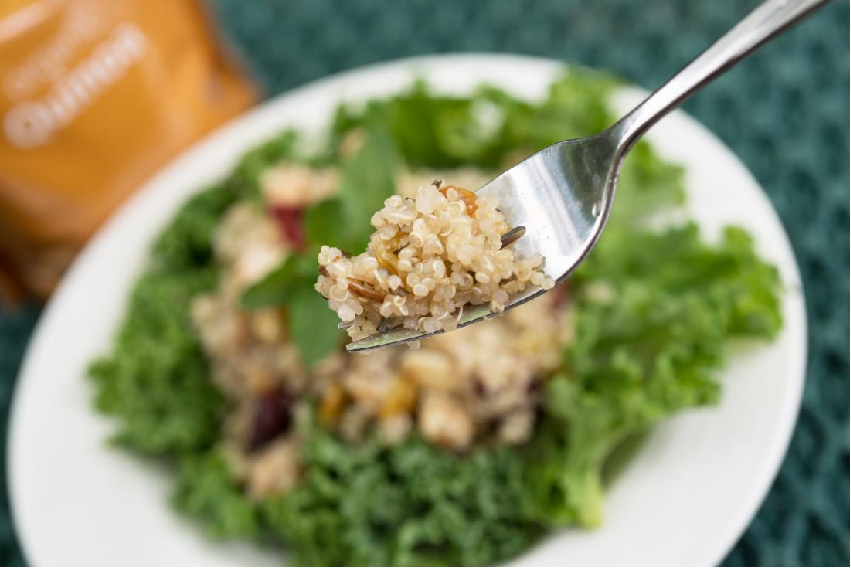If you are pregnant, you might be getting a lot of advice from well-meaning people. You might be asking whether what they say is true.Continue reading →
Nine natural remedies to prevent hair loss
Medicinal plants, supplements, and natural lotions can help strengthen the hair and prevent hair loss in autumn, especially in those cases in which the hair is more fragile or has been damaged a lot in summer.Continue reading →
Lifetime birth defects awareness during pregnancy
Birth defects can occur for many reasons. Although not all birth defects can be prevented, people can increase their chances of having a healthy baby by managing conditions and adopting healthy behaviors before becoming pregnant. Here are some steps you can take to prepare for pregnancy, awareness during pregnancy, and give your baby a healthy start in life:
Take 400 Micrograms (Mcg) Of Folic Acid Every Day

Folic acid is a B vitamin. If a woman has enough folic acid in her body for at least 1 month before and during pregnancy, it can help prevent serious birth defects of the baby’s brain and spine ( anencephaly and spinal cord). bifida ). Women can get folic acid from fortified foods or supplements, or a combination of the two, in addition to a folate-rich diet. More information on folic acid.
Prevent Infections
Some infections that women can get during pregnancy can be harmful to the developing baby and can even cause birth defects. Take a look at our 10 tips to prevent infections before and during pregnancy.
- Women who are pregnant or who were recently pregnant are more likely to get seriously ill from COVID-19 compared to those who are not pregnant. Vaccination against COVID-19 is recommended for everyone 12 years of age and older, including those who are pregnant, breastfeeding, trying to get pregnant, or may become pregnant in the future. Getting vaccinated against COVID-19 during pregnancy can protect you from getting seriously ill. If you have questions about vaccination, a discussion with your health care professional may help, but is not required before you get vaccinated.
See A Health Professional Regularly
Be sure to see your doctor when planning a pregnancy and start prenatal care as soon as possible. It is important that you see your doctor throughout your pregnancy. Keeping all prenatal care appointments, including telemedicine appointments, should be a priority.
Consult A Health Care Provider About Taking Any Medication
Certain medications can cause serious birth defects if taken during pregnancy. If a woman is pregnant or planning a pregnancy she should first talk with her health care provider before stopping or starting any medication.
Talk To A Health Care Provider About Immunizations (Shots)
Most vaccines are safe during pregnancy, and some, such as the influenza vaccine and Tdap (for adults against tetanus, diphtheria, and acellular pertussis), are specifically recommended during pregnancy. Learn about vaccination during pregnancy and learn more about COVID-19 vaccines while pregnant or breastfeeding.
Keep Diabetes Under Control
Diabetes that is not under control can increase the chance of birth defects and other problems during pregnancy. To manage diabetes, see your health care provider as recommended before and during your pregnancy. Also, monitor your blood sugar levels, follow a healthy eating plan created with your health care provider or dietitian, or nutritionist, be physically active, and take insulin as directed. Learn more about managing type 1 and type 2 diabetes during pregnancy, as well as gestational diabetes.
Avoid Alcohol At All Times During Pregnancy
Alcohol in a woman’s bloodstream passes to her developing baby through the umbilical cord. Alcohol use during pregnancy can cause miscarriage, stillbirth, and a range of disabilities. As far as is known, there is no amount of alcohol that is safe to consume during pregnancy or while trying to conceive. There is also no time during pregnancy when it is safe to drink alcohol. All types of alcohol are equally harmful, including all wines and beers. Learn more about alcohol use and pregnancy.
Avoid Smoking Cigarettes
The dangers of smoking during pregnancy include premature birth, certain birth defects ( cleft lip or palate ), and death of the baby. It is best to stop smoking before you get pregnant. For women who are already pregnant, quitting smoking as soon as possible can still help protect against some health problems in the baby, such as low birth weight. It’s never too late to quit smoking. More information on smoking during pregnancy.
Avoid Marijuana And Other Drugs
Marijuana use during pregnancy may be linked to low birth weight in babies. To the best of our knowledge, there is no amount of marijuana that is safe to use during pregnancy. Women who are pregnant or considering pregnancy should not use marijuana, even in states where it is legal. Women who use marijuana for medical reasons should talk to their health care provider about using an alternative therapy that is safe for pregnant women. Learn more about substance use during pregnancy.
Avoid Overheating The Body And Treat Fever Promptly
During pregnancy, women should avoid overheating the body and treat fever promptly. Overheating can be caused by a fever or exposure to high temperatures (such as when using a hot tub), which increases the core temperature. Overheating the body can increase the chance of having a baby with certain birth defects.
You may like to read How to avoid hair loss and when it’s time to worry
How to avoid hair loss and when it’s time to worry
Alopecia affects men and women. Tips and recommendations from experts to prevent hair loss.
All people lose their hair throughout life, there is a replacement that is part of the natural cycle and it is logical that this is visible. But there are times when it can become a concern, and there are signs to tell.Continue reading →
Eight tips for a balanced and healthy diet
Although following a healthy diet will not prevent us from being infected by a virus such as Covid-19. It will help us maintain good health.
Besides the immune system, our defenses will be stronger and will be able to respond in the most effective way possible. Therefore, here we present 8 tips to have a balanced diet in this time of the pandemic.Continue reading →
Outdoor jacuzzi: relaxing hot baths are possible
Imagine for a second that you have arrived tired from work and in your garden, a bubbling bath of hot water awaits you in your outdoor jacuzzi. He feels like the luckiest person in the world. We suggest visiting laser hair removal in Manhattan.Continue reading →
What are the disadvantages of junk food for your health?
Depression is one of the most common illnesses today. According to the World Health Organization (WHO), more than 300 million people around the world suffer from it, while in our country the figure rises to one million 700 thousand. (Ref. World Health Organization (2017). Depression).Continue reading →
Healthy Living Tips for Seniors During National Health Month
According to the report, “A Tale of Three Cities. The State of Racial Justice in Chicago,” disparities among white, African American, and Latino adults living in Chicago are rooted in historical and institutional practices that have kept minorities behind. In the areas of housing, education, economy, and health. When it comes to population health, outcomes are improving citywide, but racial disparities have been flat or intensifying in leading mortality indicators like heart disease and stroke.Continue reading →
Top fifteen tips to lose weight beyond diets
Eating a healthy diet is essential to losing weight, but following some tips and tricks will also help you to lose weight.
When we want to reach a certain weight, we try to do everything in our power to achieve it: we consult with the doctor, we start to improve our eating habits, we adopt a more active lifestyle and, in general, we try to make better decisions regarding health. Now, how to lose weight beyond occasional diets and then how to maintain that weight?Continue reading →
Top eight nutritional tips for weight loss
The “secret” to losing weight is simply to consume fewer calories than you burn each day. It sounds simple – in reality, however, nutritional tips for weight loss are about more than just counting calories. Protein sources, food choices, and cooking methods must also be considered. Therefore, it can be extremely difficult for a beginner to win the battle against the scale.
Weight Loss Tips
If you are tired of diets and see how the weight figure does not flinch, this article is made especially for you. Here are the 8 best nutritional tips for weight loss that will help you reach your ideal weight. These are small changes that will generate significant results.
Choose Fiber-Rich Carbohydrates

When it comes to losing weight, many choose to follow a low-carb or high-carb, low-fat diet. But by reducing your carb intake you are deleting a macronutrient essential for weight loss. First of all, we must be aware that there are two different types of carbohydrates: simple and complex. Simple carbohydrates are fast-release sugars, a primary source of energy, while complex carbohydrates are low-sugar foods, such as rice and pasta, that provide a sustained-release source of energy.
To lose weight, opt for low-calorie, high-fiber foods that keep you feeling full longer and steer clear of unhealthy snacks. Opt for whole grains (such as brown rice, whole wheat bread, and oatmeal) and legumes (such as lentils and beans).
Do Not Skip Any Meal
If you think that skipping meals will contribute positively to weight loss, you are very wrong. One of the main reasons that low-calorie diets can only be maintained for short periods is that your body does not function properly with 1,200 kcal/day in the long term. The human body has very intelligent adaptation mechanisms in order to preserve itself and survive. Every time you skip a meal, you’re essentially telling your body, “Don’t go overboard on calories .”
Your body understands the message and acts by slowing down the metabolism to defend against the reduction in calorie intake. This means that you will burn fewer calories than you normally expend. In short, skipping meals has the opposite effect on weight loss than you intended to achieve.
Soft Drinks Are Not Allowed
Soft drinks are great examples of what we call ” empty calories .” In other words, foods full of simple sugars offer no additional nutritional benefits other than instant energy. Every 330 ml can contain 6 to 8 tablespoons of sugar. That’s about 140 calories with no added vitamins or minerals.
Limit The Consumption Of Fruit Juices
You may wonder why taking fruit in the form of juice can be bad for losing weight. Although fruits are rich in important vitamins and minerals, remember that they also contain calories.
A small orange has approximately 10 g of carbohydrates (fructose). Let’s analyze this for a moment: how many oranges does it take for a glass of juice? Three or four? So, a glass of orange juice can contain 30 to 40 g of carbohydrates, that is, 120 to 160 calories. Eat better fruit.
Have A Cup Of Tea/Coffee
Green tea and coffee have ‘ fat-burning ‘ properties ( theine and caffeine, respectively). Research shows that these two drinks can reduce abdominal fat and improve body composition. What’s more, green tea contains polyphenols called catechins that have antioxidant properties.
More Fat. Fewer Carbohydrates
It may seem counterproductive to include more fat in your diet to lose body fat, but that’s the way it works in nutrition. There are a plethora of studies showing that low-carb diets are much better than low-fat diets for weight loss.
This is because your body will have to rely more on fats instead of carbohydrates to fuel itself. If your muscle glycogen stores (the form in which carbohydrates are stored) are always full (because you follow a high carbohydrate diet), then the body will not have the need to use fat for energy.
Eat A Weekly ‘Cheat Meal’ To Boost Metabolism
By ‘ cheat meal ‘ we generally mean a meal rich in fat and carbohydrates (junk food, in most cases) that breaks with the normal dietary plan. Eating one cheat meal a week can actually promote weight loss.
Metabolism is generally reduced by low-calorie diets. A cheat meal will boost your metabolism and ensure that your body continues to burn calories at a higher rate. Just make sure this cheat meal doesn’t turn into an entire weekend or even a week.
Drink Lots Of Water
Water helps eliminate toxins and fluids retained in the body. In addition, water is involved in all metabolic processes and is therefore crucial for the proper functioning of our body. Without the proper amount of water, none of the nutritional tips above will make sense.
Conclusion
These are simple but powerful tips that will help you reach the caloric deficit threshold necessary for effective weight loss. If you are trying to lose weight, first review your diet plan making sure you have chosen the right foods. Second, check that you are not making any of the mistakes we have mentioned in this post.
You may also be interested in Health care tips at the age of 30, where do I start?






